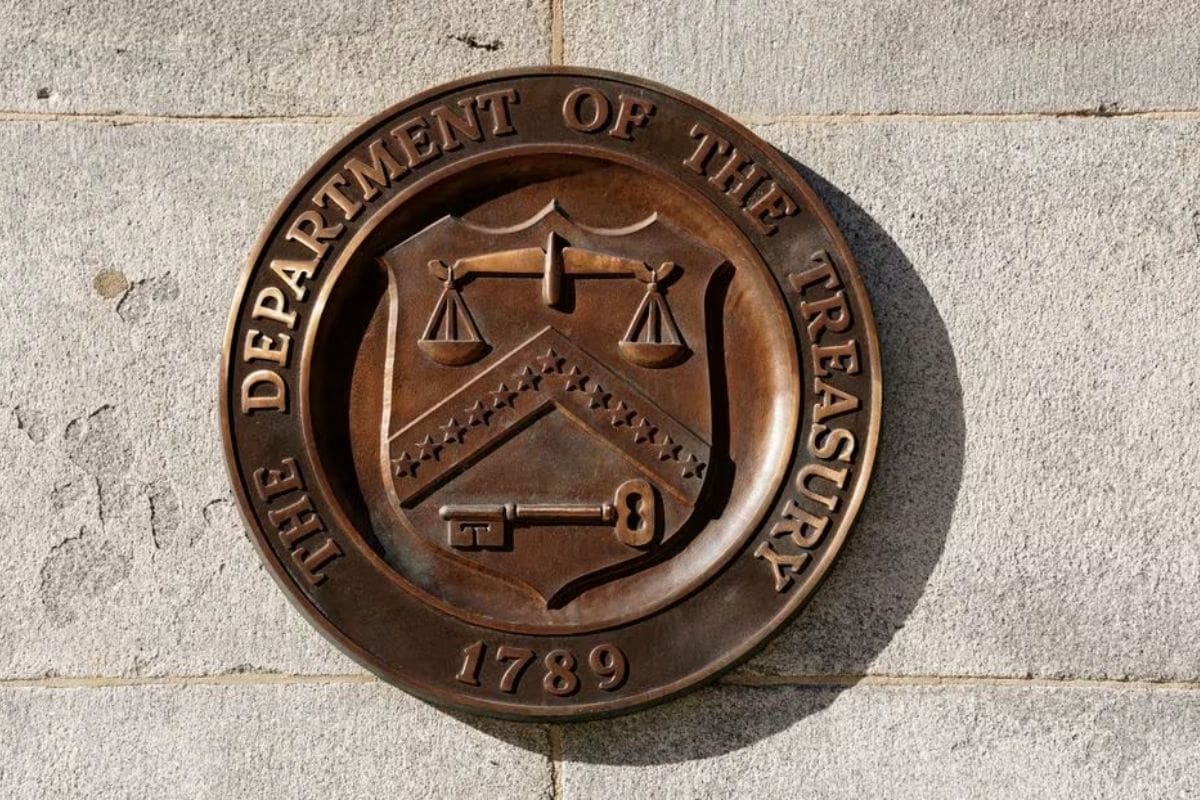January Deficit in the U.S. Decline: The January deficit in the U.S. has seen a notable decline, attributed to a combination of increased receipts and reduced tax refunds. This shift has sparked discussions among experts, raising questions about the underlying economic factors at play.
As the numbers reveal a surprising deviation from previous trends, the implications for the overall fiscal health of the nation remain uncertain. With record-breaking receipts and carefully monitored outlays shaping this narrative, the intricate dance of revenue and expenditure paints a complex picture of the country’s financial landscape.
Sharp Decline in January U.S. Federal Budget Deficit
In a remarkable turn of events, the January U.S. federal budget deficit saw a sharp decline, plummeting to $22 billion due to unprecedented factors. This substantial decrease was a result of record receipts for the month, coupled with a reduction in tax refunds.
The Internal Revenue Service (IRS) played a pivotal role in this development by clearing a backlog of pandemic-delayed tax returns, which led to a more efficient processing of refunds. The increase in receipts indicates a boost in economic activity and tax collection efficiency, reflecting positively on the overall financial health of the nation.
This decline in the deficit signifies a step towards fiscal responsibility, showcasing the government’s ability to manage its finances effectively. The intricate interplay between tax policies, economic performance, and administrative efficiency has contributed to this significant achievement.
Moving forward, maintaining this trend will be crucial to ensuring long-term economic stability and sustainable budget management.
Comparative Analysis with January 2023
The stark contrast in financial performance between January 2023 and the most recent month showcases a notable shift in the U.S. federal budget landscape. In January 2023, the deficit stood at $39 billion, whereas last month, it plummeted by a substantial $17 billion, marking a 43% reduction.
This dramatic improvement is primarily attributed to the growth in receipts, which surged by 7% to reach $477 billion. On the expenditure side, outlays rose by 3% to $499 billion, indicating a more modest increase compared to the significant boost in revenues.
This comparative analysis highlights a promising trend in the U.S. federal budget management, with the current month demonstrating increased fiscal responsibility and efficiency. The substantial reduction in the deficit coupled with the uptick in receipts underscores a positive trajectory that bodes well for the country’s financial health and stability.
This shift underscores the importance of prudent fiscal policies and effective revenue generation strategies in shaping the nation’s economic outlook.
Factors Influencing January’s Performance
Driven by the absence of significant one-time outlays like the $36 billion bailout of a Teamsters union pension fund in January 2023, January 2024’s financial performance was notably influenced by distinct factors shaping the month’s economic landscape.
The reduction in tax refunds played a pivotal role in bolstering the month’s receipts, contributing to the decline in the deficit. This decrease in tax refunds indicates a potentially healthier economy, as individuals may have adjusted their tax withholdings more accurately, leading to higher receipts for the government.
Additionally, increased economic activity and consumer spending likely boosted tax revenues, further improving the deficit situation. The absence of extraordinary events or emergency expenditures allowed for a more stable financial picture in January 2024, highlighting the importance of consistent fiscal management.
Moving forward, policymakers should continue to monitor these factors closely to ensure sustained economic growth and fiscal responsibility.
ALSO READ: ANZ Group Surges: Q1 Revenue Matches Year-Ago Average
Year-to-Date Fiscal Year Performance
Reflecting on the year-to-date fiscal year performance, significant increases in the deficit have been primarily driven by rising costs to service the national debt and expanded outlays for key social programs and military initiatives. The deficit surged by $72 billion, marking a 16% increase to reach a total of $532 billion for the first four months of the fiscal year.
This uptick underscores the financial strain caused by the mounting expenses associated with servicing the national debt, alongside the amplified spending on pivotal social welfare programs such as Social Security and Medicare, as well as military endeavors. The escalating deficit figures paint a stark picture of the fiscal challenges facing the nation, highlighting the pressing need for strategic reforms in expenditure management and revenue generation.
As the deficit continues to swell, urgent action must be taken to ensure sustainable fiscal practices and mitigate the long-term economic repercussions of unchecked budget shortfalls.
Record-Breaking Receipts and Outlays
Heightened fiscal pressures loom large as record-breaking receipts and outlays in the first four months of the fiscal year paint a vivid picture of the financial landscape in the United States. The Treasury’s report reveals staggering figures that show the country’s financial activities are at unprecedented levels. Here are three key points to consider:
- Receipts Surge: Receipts skyrocketed by $112 billion, marking an 8% increase to reach an impressive $1.585 trillion. This surge in revenue indicates a robust economic environment that is generating substantial income for the government.
- Outlays Soar: Outlays also hit a new high, rising by $184 billion, a substantial 10% increase, totaling $2.117 trillion. This surge in government spending underscores the various financial obligations and expenses that the nation is currently grappling with.
- Specific Factors at Play: The article underscores the importance of understanding the factors influencing changes in individual tax refunds, interest costs on the public debt, and program costs for critical sectors like Medicare, Social Security, and military programs. These factors play a crucial role in shaping the overall financial health of the country.
Conclusion Of January Deficit in the U.S. Decline
The sharp decline in the January U.S. federal budget deficit is a significant milestone in the country’s fiscal management. The impressive increase in receipts and reduction in tax refunds have contributed to this positive outcome.
The record-breaking performance in both receipts and outlays demonstrates the government’s commitment to financial responsibility. This success in January sets a promising tone for the rest of the fiscal year and showcases the effectiveness of current economic policies.


